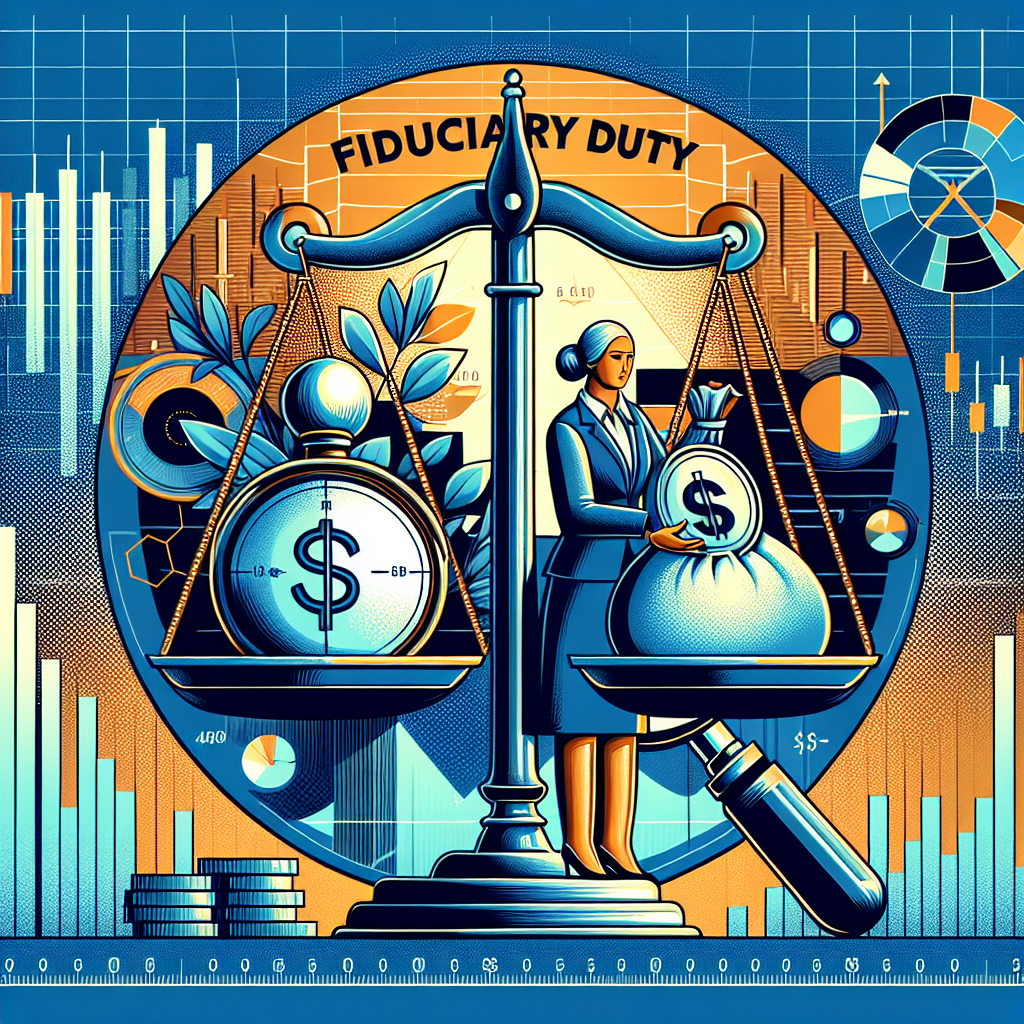
When you’re picking a financial advisor, you hear a lot about fiduciary duty. It’s like the buzzword of the financial world. Many people throw it around, but what does it actually mean? More importantly, why does it matter when you’re entrusting someone with your hard-earned cash?
Contents
What is Fiduciary Duty?
The Basics
Fiduciary duty is a legal obligation. It requires someone to act in another’s best interest. When we talk about financial advisors, it means they should put your financial well-being over their own profits. Seems simple, right? But not all advisors have this duty.
The Two Hats of Financial Advisors
Advisors can wear two hats: fiduciary and suitability. Some only need to recommend products that are “suitable.” They don’t have to be the best, just suitable. A fiduciary, however, aims for the best choice for you. That’s why understanding this is crucial.
Why You Should Care
Trust and Transparency
In the world of finance, trust is everything. A fiduciary duty instills trust. You’re assured that your advisor is transparent and prioritizes your needs. Think about it—wouldn’t you want peace of mind knowing someone has your back?
Avoid Conflicts of Interest
Fiduciaries are less likely to have conflicts of interest. A conflict occurs when an advisor benefits more than you do from an investment. Fiduciaries must disclose any potential conflicts, keeping the playing field level.
Long-term Benefits
Fiduciaries aim for long-term growth. They’re not about quick wins that fatten their commission checks. They’re in it for your financial journey, ensuring you reach your goals without unnecessary risks.
Comparing Fiduciary vs. Suitability Standards
Below is a comparison table that breaks down the essence of these standards:
| Criteria | Fiduciary Standard | Suitability Standard |
|---|---|---|
| Best Interest | Always yes | Not necessarily |
| Disclosure of Fees | Transparent | Often hidden or unclear |
| Conflict of Interest | Must be disclosed | Often undisclosed |
| Product Choice | Client-centric | Broker-centric |
| Regulation | STRAs (SEC, DOL) | FINRA |
In-depth Questions
How Can You Confirm If an Advisor is a Fiduciary?
To verify if an advisor is a fiduciary, ask them directly. They should answer transparently. Also, check their credentials. Advisors registered with the Securities and Exchange Commission (SEC) typically adhere to fiduciary standards. Don’t shy away from asking about fee structures. An upfront fiduciary will clearly outline their compensation methods. Lastly, read their Form ADV, a public disclosure document that’ll give insights into their fiduciary status and practices.
What Are the Legal Ramifications for Breaching Fiduciary Duty?
A fiduciary breach can have serious consequences. The advisor might face penalties, or worse, lose their license. Clients can sue for damages if the fiduciary relationship is violated. Fiduciaries are held to a higher legal standard, reinforcing their commitment to act in your best interest. If you’ve been wronged, seeking legal advice is crucial. Financial disputes can be complex, so ensuring you understand your rights when someone breaches can make a huge difference.
Why Do Some Advisors Choose Not to Be Fiduciaries?
Not all advisors operate as fiduciaries because of the operational flexibility they otherwise get. Suitability standards offer more leeway, allowing advisors to sell high-commission products. This isn’t necessarily predatory, but it can lead to conflicts of interest. Some advisors prefer the simplicity of the suitability model. It’s less restrictive and thus more profitable. Yet, for clients, this can often mean their best interests aren’t always the priority. Keep this in mind when selecting your advisor. Check additional insights on making savvy investment choices for your financial security.
How to Find the Right Advisor
Do Your Homework
Researching potential advisors is crucial. Don’t just go with the first name on Google. Talk to friends and family for recommendations. Read reviews online for a range of opinions. Visit their websites and see if they declare fiduciary status clearly.
Conduct Interviews
Meet with multiple advisors. Ask smart questions like, “Are you a fiduciary?” and “How do you get paid?” Get a feel for their approach to managing money. Do they align with your financial goals?
Look for Credentials
Certifications matter. Look for designations like Certified Financial Planner (CFP). These often indicate adherence to fiduciary standards. Credentials can reflect the advisor’s dedication to acting in your best financial interest.
Practical Tips for Working with Financial Advisors
Set Clear Goals
Before meeting an advisor, know what you want. Whether it’s retirement savings or buying a home, having clear goals helps your advisor tailor better strategies.
Regular Check-ins
Schedule regular meetings with your advisor. Financial landscapes change, and so do personal circumstances. Regular check-ins ensure your financial strategy stays relevant.
Review Statements
Always review your financial statements. It keeps you informed about your financial health. This not only builds trust but empowers you to make informed decisions.
Wrap-up
Understanding fiduciary duty is like having a roadmap for your financial journey. It ensures transparency, trust, and alignment with your needs. When you’re out there hunting for a financial advisor, don’t just ask if they have fiduciary duty—demand it. This makes all the difference in the world of investments and long-term financial planning. Need more insights? Check out additional resources to bolster your investment literacy.






